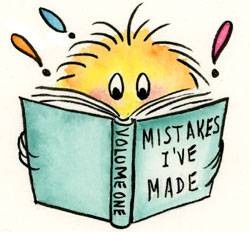Why knowledge matters: rescuing our children from failed educational theories
by Eric D Hirsch
How can knowledge-based curriculum be integrated into K-12 schooling? What are other ways to equalise educational experiences across various demographics? ... asks Dr E D Hirsch Jnr, in his latest book.
In Why Knowledge Matters: Rescuing Our Children from Failed Educational Theories published by Harvard Education Press in September, Hirsch, discusses the need for a common base of knowledge in K-12 school curriculum in order to ensure equal opportunities for students of all backgrounds. He suggests that when standardised tests measure skills rather than content, they actually hinder students from disadvantaged backgrounds.
Hirsch developed his concept of cultural literacy - the idea that reading comprehension requires not just formal decoding skills but also wide ranging background knowledge. In 1986, he founded the Core Knowledge Foundation, and a year later, published Cultural literacy: what every American needs to know. A publishing phenomenon, the book remained at the top of the New York Times best-seller list for more than six months.
Hirsch argues here that there's a narrowing of the curriculum associated with our 'reading and maths obsession' and the accountability regimes that go with this. There's the perverse effect of Google and other technologies leading us to assume that we "can always look it up'. And most perniciously - as is the theme of Why Knowledge Matters - there's what Hirsch terms 'the tyranny of three ideas' that steer educators in the wrong direction.
Mistaken ideas ...
- Early education should be age-appropriate and seen as part of a 'natural development process'. (NB: 'early education' in Hirsch's world isn't preschool - it's kindergarten and the first several grades of school.
- Early education should be individualised as far as possible.
- The main aim of education is to develop critical thinking and other 'general skills'.
Nonsense, suggests Hirsch. He draws on evidence from cognitive psychology and social science to prove this.
What children mostly need in the early grades is a common, knowledge-centric curriculum (they'll learn more too - since they'll find it so much more interesting - and knowledge has a multiplier effect). It'll boost their reading scores; prepare them to succeed in middle school, high school and beyond (where US test scores and other metrics crash); and, importantly, it will help equalise opportunity in American society in ways that no anti-poverty or compensatory education programme can possibly hope to do.
Hirsch claims that knowledge improves equity and crucially enables young people to contribute to society as good citizens in a way that child centred or 'progressive' approaches simply can't.
More from E D Hirsch ...
The schools we need
1996
For more information about Hirsch and his work, click here to read our Beginner's Guide to E D Hirsch.
Comments
By accepting you will be accessing a service provided by a third-party external to https://edcentral.uk/







